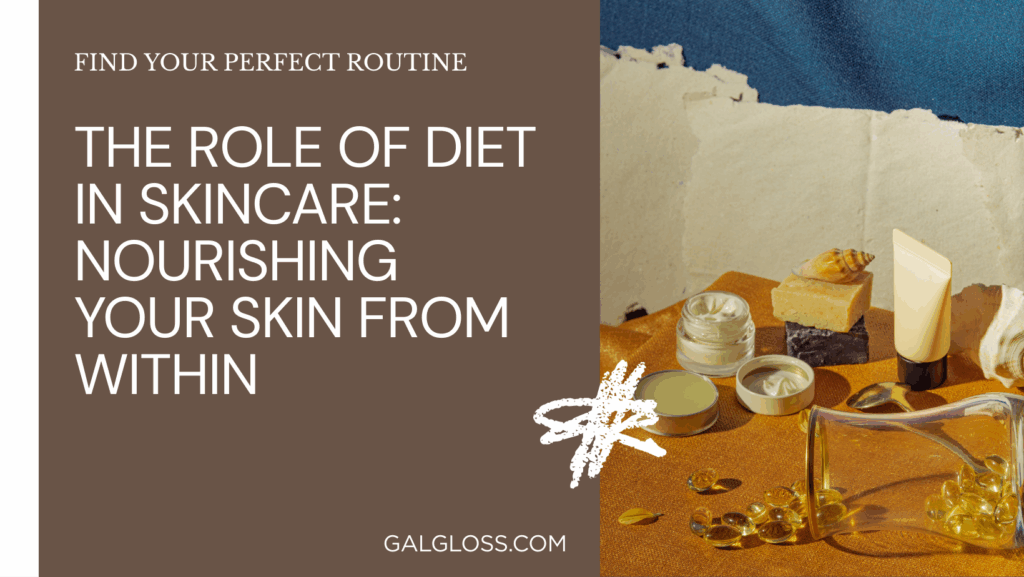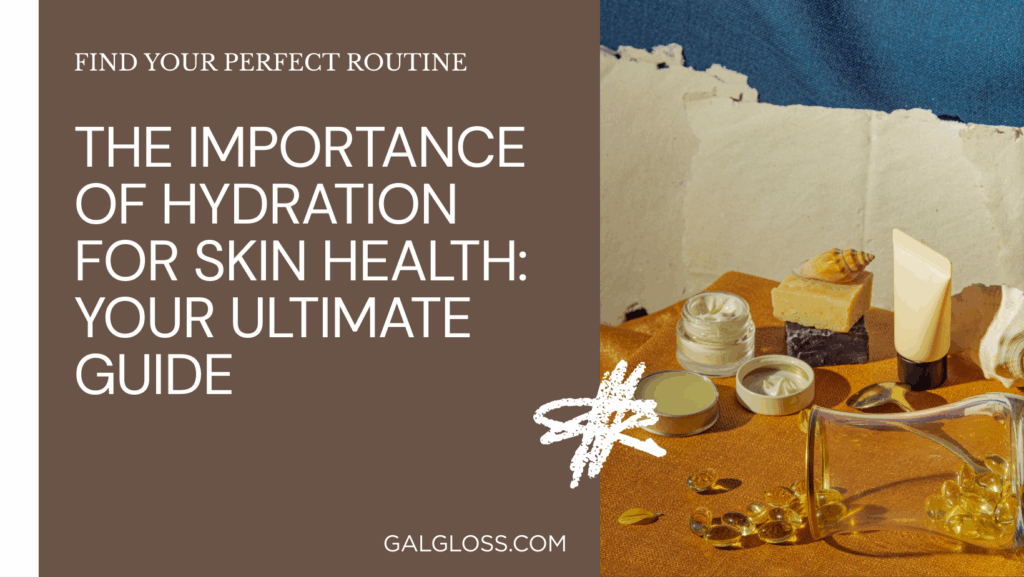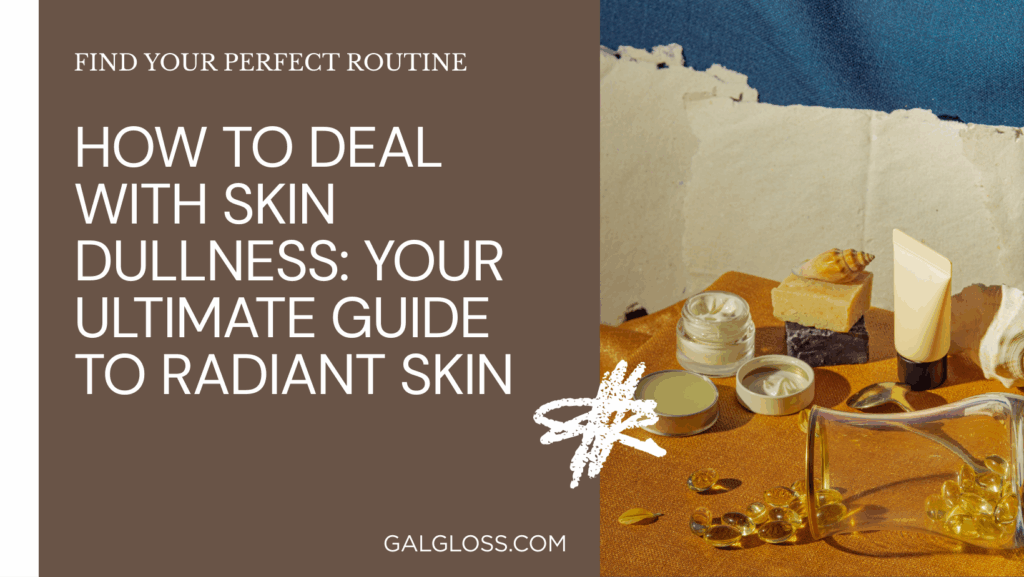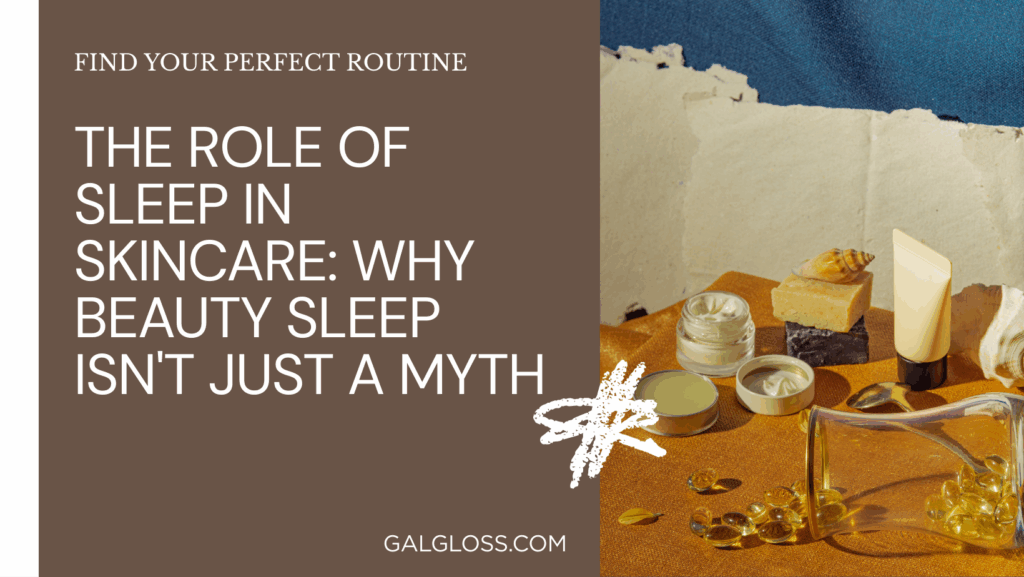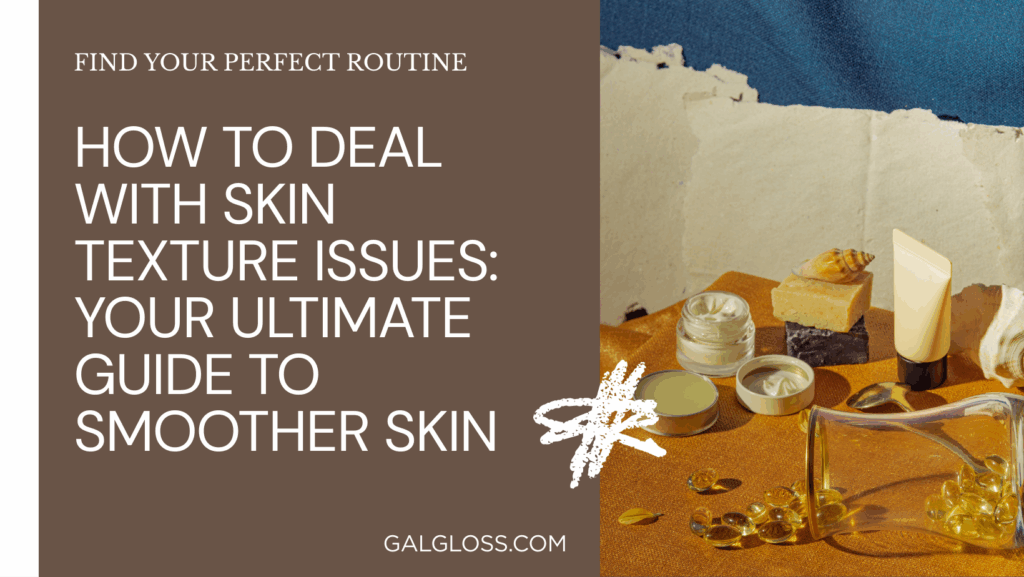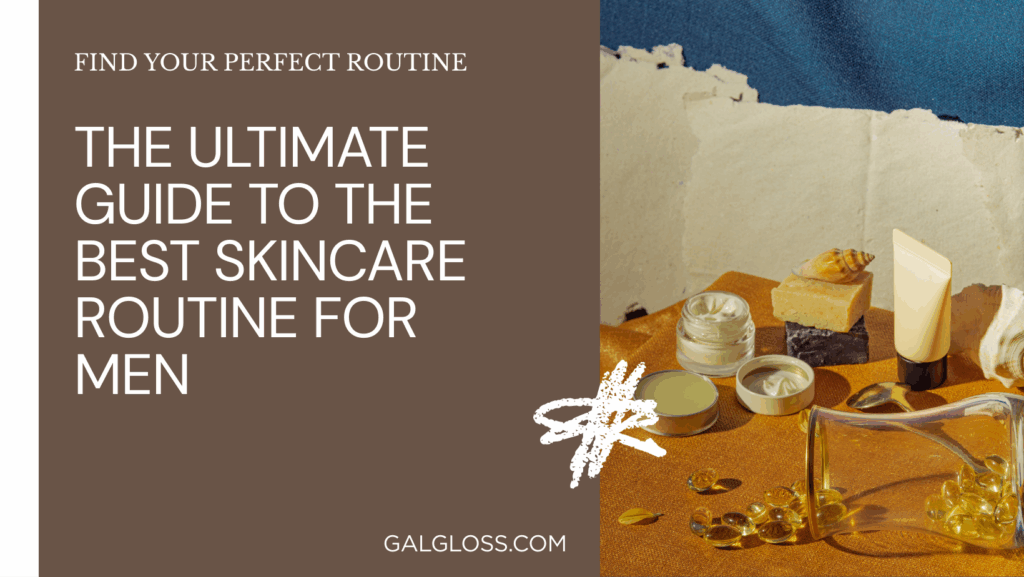First things first: what exactly is skin dehydration? Simply put, it’s when your skin lacks water. It’s like your skin is crying out for a tall glass of H2O. But here’s the kicker – even oily skin can be dehydrated. Mind-blowing, right?
Dehydrated skin isn’t just a cosmetic issue. It can lead to a whole host of problems:
- Tightness and discomfort
- Dull, lackluster complexion
- Fine lines and wrinkles (yikes!)
- Increased sensitivity and irritation
So, why should you care about keeping your skin hydrated? Well, hydrated skin is happy skin. It’s more resilient, looks plumper, and gives you that coveted dewy glow. Plus, it’s better equipped to fight off environmental stressors and signs of aging. Who doesn’t want that?
Dry Skin vs. Dehydrated Skin: What’s the Difference?
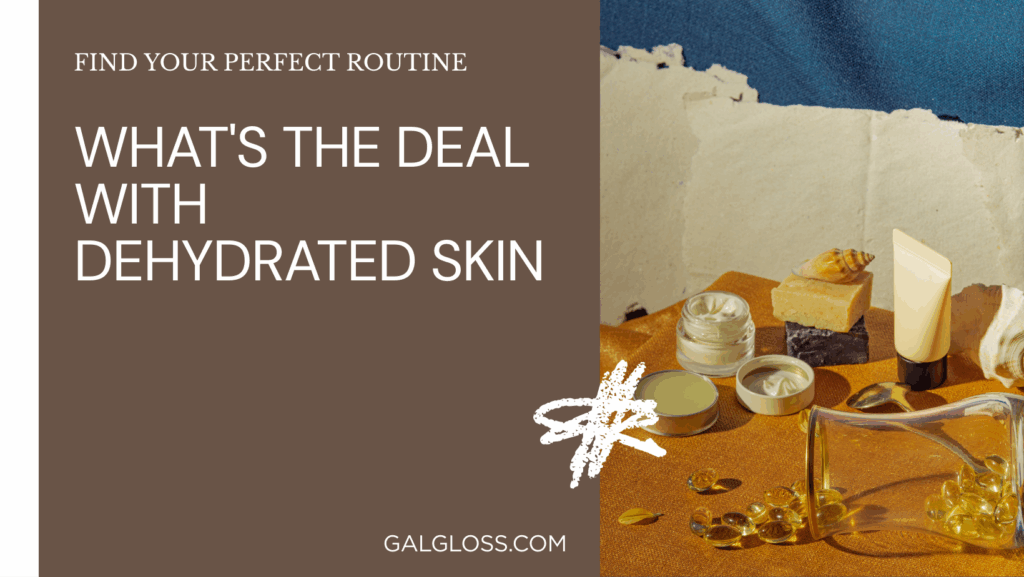
Now, you might be thinking, “Isn’t dry skin the same as dehydrated skin?” Not quite! Here’s the lowdown:
- Dry skin is a skin type. It lacks oil and feels rough or flaky.
- Dehydrated skin is a condition. It lacks water and can happen to any skin type, even oily!
Think of it like this: dry skin is like a desert (no oil), while dehydrated skin is like a deflated water balloon (no water). Both need help, but they need different kinds of help.
The Science Behind Skin Hydration
Let’s get a bit nerdy for a second. Your skin has this amazing thing called the moisture barrier. It’s like a protective shield that keeps good stuff in (like water) and bad stuff out (like pollutants).
This barrier is made up of:
- Natural moisturizing factors (NMFs)
- Lipids (fancy word for fats)
- Proteins
When this barrier is compromised, water escapes more easily – a process called transepidermal water loss (TEWL). The result? Dehydrated skin.
Common Causes of Skin Dehydration
So what’s causing your skin to lose its precious moisture? Here are some usual suspects:
- Not drinking enough water (duh, but it’s true!)
- Harsh skincare products that strip your skin
- Hot showers (I know, they feel great, but they’re not great for your skin)
- Air conditioning and central heating
- Sun exposure (hello, UV damage)
- Aging (sadly, we can’t stop time)
- Certain medications
- Alcohol and caffeine (they’re diuretics, which means they make you pee more)
Signs Your Skin is Crying Out for Hydration
How do you know if your skin is dehydrated? Look out for these telltale signs:
- Tight, uncomfortable feeling after cleansing
- Increased sensitivity
- Dull, lackluster appearance
- Fine lines appear more pronounced
- Skin feels rough or looks flaky
- Makeup doesn’t go on smoothly
- Dark under-eye circles
- Increased oiliness (yes, really – your skin might produce more oil to compensate)
Building Your Hydration-Focused Skincare Routine
Now for the fun part – let’s build a skincare routine that’ll make your skin say “Ahhh!” Here’s a step-by-step guide:
1. Cleanse Gently
Ditch those harsh, stripping cleansers. Opt for a gentle, hydrating cleanser that won’t disrupt your skin barrier. Look for ingredients like glycerin or ceramides.
2. Tone Wisely
Forget those alcohol-based toners of yesteryear. Choose a hydrating toner or essence that adds moisture back into your skin. Ingredients like hyaluronic acid or rose water are your friends here.
3. Serum Up
This is where you can really pack a hydrating punch. Look for serums with hyaluronic acid, which can hold up to 1000 times its weight in water. That’s some serious hydration power!
4. Moisturize, Moisturize, Moisturize
Choose a moisturizer that suits your skin type but focuses on hydration. For oily skin, a gel-cream might work best. For dry skin, a richer cream could be your go-to.
5. Don’t Skip the SPF
Sun damage can lead to dehydration, so always finish your morning routine with a broad-spectrum sunscreen. Bonus points if it has hydrating ingredients too!
6. Night-Time Boost
Consider using a sleeping mask or a richer night cream to give your skin an extra boost of hydration while you snooze.
Key Ingredients for Hydrated Skin
When shopping for skincare products, keep an eye out for these hydration heroes:
- Hyaluronic Acid: The hydration superstar we mentioned earlier.
- Glycerin: Another humectant that draws water into the skin.
- Ceramides: These lipids help strengthen your skin barrier.
- Squalane: A lightweight oil that mimics your skin’s natural sebum.
- Aloe Vera: Soothing and hydrating, perfect for sensitive skin.
- Niacinamide: Helps improve skin barrier function.
- Panthenol: Also known as pro-vitamin B5, it’s a great hydrator.
Lifestyle Changes for Hydrated Skin
Skincare products are great, but lifestyle changes can make a huge difference too:
- Drink up: Aim for at least 8 glasses of water a day. Your skin (and the rest of your body) will thank you.
- Eat water-rich foods: Think cucumbers, watermelon, and leafy greens.
- Get your beauty sleep: Your skin repairs itself while you snooze, so aim for 7-9 hours a night.
- Manage stress: Stress can wreak havoc on your skin. Try meditation, yoga, or whatever helps you chill out.
- Use a humidifier: Especially if you live in a dry climate or use air conditioning a lot.
- Limit hot showers: I know, I know, but your skin will be happier with lukewarm water.
- Watch the booze and caffeine: Both can be dehydrating, so enjoy in moderation.
Advanced Treatments for Severe Dehydration
If your skin needs an extra boost, consider these treatments:
- Hydrafacials: A professional treatment that cleanses, exfoliates, and infuses skin with intensive hydrators.
- Sheet masks: For an at-home spa day, these can give your skin a serious hydration boost.
- Overnight masks: These work while you sleep for deep hydration.
- Facial oils: A few drops can seal in moisture and give you a healthy glow.
Remember, if your skin dehydration is severe or persistent, it’s always a good idea to consult a dermatologist.
Seasonal Skincare Adjustments
Your skin’s needs change with the seasons, so your routine should too:
- Winter: Use richer moisturizers and don’t forget to protect against harsh winds.
- Summer: Lighter products work well, but never skimp on hydration or sun protection.
- Spring/Fall: Transition gradually, adjusting your products as needed.
Common Mistakes to Avoid
Even with the best intentions, you might be making some hydration faux pas:
- Over-exfoliating: This can damage your skin barrier. Stick to 1-2 times a week max.
- Skipping moisturizer if you have oily skin: Remember, oily doesn’t mean hydrated!
- Not reapplying sunscreen: Your SPF needs a refresh every 2 hours when you’re out and about.
- Licking your lips: It might feel good momentarily, but it actually dries them out more.
- Neglecting your neck and chest: These areas need hydration love too!
DIY Hydrating Masks
Want to whip up some hydration in your kitchen? Try these simple DIY masks:
- Honey and avocado mask: Mash half an avocado with a tablespoon of honey. Apply for 15 minutes.
- Yogurt and cucumber mask: Blend cucumber and mix with plain yogurt. The lactic acid in yogurt gently exfoliates while cucumber soothes and hydrates.
- Oatmeal and milk mask: Mix ground oatmeal with a bit of milk for a soothing, hydrating treat.
Remember, always patch test DIY treatments before applying them to your face!
Conclusion: Your Journey to Hydrated, Glowing Skin
Dealing with skin dehydration isn’t just about slapping on some moisturizer and calling it a day. It’s about understanding your skin, giving it what it needs, and being consistent with your care.
Remember these key takeaways:
- Hydration comes from both inside and out. Drink that water!
- Your skin barrier is your friend. Treat it kindly.
- Choose products with hydrating ingredients like hyaluronic acid, glycerin, and ceramides.
- Adjust your routine as needed – for different seasons or as your skin changes.
- Don’t hesitate to seek professional help if you’re struggling.
Most importantly, be patient and kind to your skin. Rome wasn’t built in a day, and neither is a hydrated, glowing complexion. But with consistency and the right approach, you’ll be on your way to skin that’s hydrated, healthy, and absolutely radiant.
So, are you ready to say goodbye to dehydrated skin and hello to a plump, dewy complexion? Your skin’s thirst-quenching journey starts now. Cheers to hydrated, happy skin!
